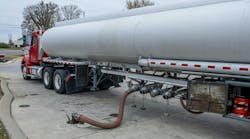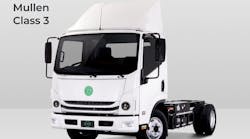Alternative fuel vehicles (AFVs) are gaining significant traction throughout North America, increasing from production of less than 1,200 vehicles in model-year 2010 to nearly 105,000 in model-year 2013, according to the EPA’s annual Trends report. While today’s AFVs still only represent about 0.7% of overall new-vehicle production, the nearly 100-fold increase seen over the past four years provides an extremely bright outlook for future adoption.
Our nation’s fleets play an important role in advancing the market, often leading the charge on infrastructure development, technology demonstrations, and influencing AFV policy development. In the spirit of the holidays, we would like to recognize these important efforts in our “12 Months of AFV Deployment” recap:
- January: The City of Orlando announced the delivery of the first four of nine Autocar refuse trucks with Parker Hannifin’s fuel-saving RunWise hydraulic hybrid system.
- February: C.R. England, operator of the world’s largest fleet of refrigerated trucks, signed with Shell to supply liquefied natural gas for its growing fleet of LNG-powered tractors.
- March: Propane fuel system provider CleanFUEL USA reported that UPS will deploy 1,000 propane autogas-fueled delivery trucks in the U.S.
- April: Seaboard Foods’ High Plains Bioenergy unit opened a new fueling station for its 100-plus Kenworth CNG fleet of trucks that haul biodiesel feedstocks.
- May: The New York City Dept. of Sanitation announced the purchase of seven street sweepers from Global Environmental with hybrid electric drivetrains from US Hybrid.
- June: Philadelphia’s PECO utility received 22 Odyne-Allison plug-in hybrid electric work trucks as part of a DOE-backed project.
- July: Delco Foods in Indianapolis committed to converting its entire fleet of delivery vehicles to CNG.
- August: Google sponsored 100% battery-electric buses with Motiv drives for free shuttle service in Mountain View, CA.
- September: South San Francisco Scavenger reported the first-ever transportation use of biomethane-renewable natural gas from dry anaerobic digestion, used to fuel its fleet of 17 CNG refuse trucks. Also notable, Anheuser-Busch converted its entire Houston fleet to CNG.
- October: Indianapolis Mayor Greg Ballard announced the city’s municipal “Freedom Fleet,” pledging to lease 425 electric vehicles through 2016.
- November: Kansas City opened its first CNG fueling station, supporting that city’s fleet of dump trucks, recycling trucks, utility trucks, pickups, vans, sedans, and even riding lawn mowers.
- December: The South Coast Air Quality Management District Governing Board met to discuss deploying seven Class 8 fuel cell and plug-in hybrid trucks for goods movement operations between the ports of Los Angeles and Long Beach. Watch for a possible announcement!
To learn more about these leading AFV fleet deployments and more, mark your calendar to join us at the Alternative Clean Transportation (ACT) Expo from May 4-7, 2015, in Dallas.
Erik Neandross is CEO of Gladstein, Neandross & Associates (GNA), the clean transportation and energy consulting firm that organizes the Alternative Clean Transportation (ACT) Expo. Learn more at www.gladstein.org and www.actexpo.com.


